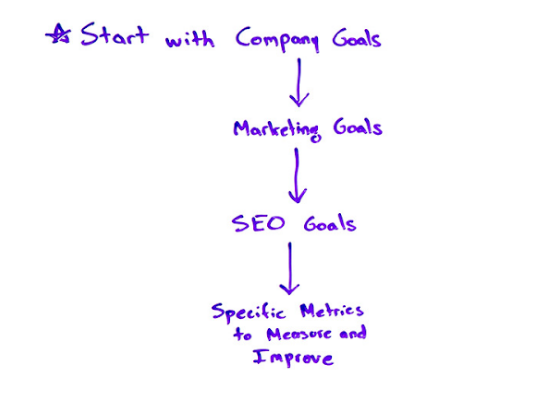1
Steph W. from SEOPressor


👋 Hey there! Would you like to try out this New AI-Powered App that'll...
...help you check your website and tell you exactly how to rank higher?


87
score %
SEO Score

Found us from search engine?
We rank high, you can too.
SEOPressor helps you to optimize your on-page SEO for higher & improved search ranking.
By vivian on April 7, 2020
If you are familiar with the concept of SEO, you would know that it isn’t a one-off project.
Not only are search engine optimization strategies highly convoluted with 200 ranking variables, but Google also undergoes frequent search engine algorithm updates, announced or unannounced.
This all adds to the need for managing your SEO campaigns.
Still, the difficulty and competitiveness of search engine optimization are well justified by its benefits. Ranking on the top of search engine results opens up the door for your business website presence and traffic.
That’s why as a business owner, it is increasingly important to manage your search engine optimization, and one way to avoid getting overwhelmed when managing and tracking your website SEO is through managing them in campaigns.
What do I mean? Well, let’s begin our definitive guide on SEO campaign management.
You can’t manage what isn’t being tracked.
Essentially, SEO management refers to being actively involved in managing your business or website’s SEO game plan.
It means keeping track of your site and content performance weekly and taking actions to improve your website results on Google SERPs.
Part of SEO management and improvement also involves running active SEO campaigns to enhance your site’s technical elements as well as content optimization.
To make sure we are on the same page, an SEO campaign actually refers to using a group of SEO strategies and techniques to generate an SEO boost or rank for a certain keyword.
Besides, it can also be created for the purpose of introducing a new product or promoting an event.
Given that revamping SEO-related factors does not immediately change your results, it’s very important that you isolate each event and track them to truly understand what works and what does not to attain your business objectives.
For that, we recommend using Google spreadsheets or Airtable to keep track and monitor the results of your SEO campaigns and as a template, here’s the one we use for our SEO processes.

While SEO campaign management is not a straightforward concept, it isn’t too complex even for digital marketing beginners.
If you are just starting an SEO campaign, I recommend you to read my colleague’s post on the 5 factors behind a successful SEO campaign for beginners.
Planning is a crucial part of any SEO campaign strategy.
This setup the foundation of your campaign with a great strategy to reach your target audience and achieve your best results. So before you start diving into your optimization efforts, content creation, and link building, it’s always important to consider your goals.
Before setting your SEO goals or tracking, you should always start by deciding how you will define success and measure progress towards your objectives. I really recommend listening to Moz’s Rand Fishkin guide for this on how to set smart SEO goals.

When it comes to search engine optimization, you have to dig deeper than simply ranking on search engines, traffic, visitor engagement, and bounce rates. Those are secondary metrics to measure, that should be defined by your ultimate SEO Campaign goals.
Instead, understand your business and marketing goals first and let that define your SEO goals. Here’s a list of questions that will help you answer your SEO campaign management plan:
Once you have set your SEO goals, it’s now time to undergo the keyword research process to identify your target keywords and competitors.
It is highly likely that there are over a dozen sites offering products or services that are similar to your company’s offerings. Knowing your online competitors and their online operations come in handy when determining your long-term strategy.
To identify your SEO competitors is simple. Just type in your targeted keyword in Google and see which domains are ranking. However, don’t just do it for one keyword — do this for 10 to 20 keywords and track the websites that are ranking for them as well as their content.
Here’s a quick example.
So let’s say you are an insurance company and you’re looking to rank for a competitive keyword like “life insurance business in Dallas”. A quick Google search and you will see all your competitors trying to rank for the same keyword.

Analyze your competitors and see what products-slash services are they offering? What about the price points? Also, do a quick site search of your competitors on the keywords. See how much content they have created on the said keyword. Is there a potential opportunity?
Focus on 3 competitors, and look into their social presence, coverage, link building tactics everything and also breakdown the topics they are targeting and what are the estimated search traffics.
If you can do better than your competition, you may be able to earn the top ranking on Google.
Given you’re not starting your SEO efforts completely anew, there’s still one last step. Look internally into your own website and existing content to spot any potential traffic opportunities.
This could include:
To reveal hidden featured snippet opportunities and discover ranking keywords that you might not even be aware of, we recommend using BiQ’s Rank Intelligence.
At times, your old content could be a traffic goldmine by just making some minor tweaks. Here’s a guide on how you can increase your website traffic with old content.
Ok, now that you have your SEO strategies, it is time to set them into realistic timeframes.
This is important to discern the changes you have made are indeed what is causing your organic traffic to change, be it for good or for bad. It is always easy to take credit when traffic is growing, but unless you are able to pinpoint your results to your efforts, you wouldn’t know what is truly working.
Not to mention, there are always external factors in play. So for all the SEO strategies that you are looking to do, always rank them on importance and impact to determine what you should do first.
Then place them into timeframes based on the days needed for execution, with a week in between each campaign.
Know that your SEO campaigns are not a short-term branding boost. Having a long-term focus is incredibly essential.
It’s also best not to set measurable objectives sooner than 6 months out because usually, it will take a minimum of six months to create a foundational reputation.
Always understand that in the beginning, you’ll be investing more effort and funds into your strategy than you will yield in results.
However, with time, you will begin to break even, and ultimately, you will start to gain a higher ROI. So now it’s time to move onto the ongoing reporting phase of your SEO campaigns.
Tracking should be your top priority when it comes to your SEO campaign management. That’s because it lets you know whether your SEO strategies are working effectively.
Read on how BiQ’s Rank Tracking module allows you to track your SEO performance like a boss.
In fact, you should track and perform a comprehensive weekly and monthly analysis of the following aspects:
In the above sectors, consistency is essential. Gaining natural traffic requires patience and continuing to consciously create your SEO campaign workflow.
Many companies treat search engine optimization as a race, in the sense that the focus is on being number one. While it is essential to track competitors, you need to be proactive if you want to have a successful SEO campaign.
A good campaign concentrates on reaching the target audience and giving them something of value. With a proactive strategy, you will be more resilient to any change in the competitive space.
Additionally, your SEO management should incorporate a consistent review and enhance your site framework to boost user experience and meet SEO technical specifications
As an SEO manager, your workload may include many hectic responsibilities and tasks. However, you can be able to ease the workload by using the following tools:
You can also put your content market strategies and tracking on one platform.

Search engine optimization can be costly, not only in time but also in price. Managing your SEO campaigns with SEO tools like Moz Pro can cost up to $99 per month for only a standard 5 campaigns.
Still, the results of SEO in itself make it a worthy investment especially when you rank on the top of search engines. However, now there’s this new SEO tool that demystifies SEO cost and it’s called BiQ. Currently, the tool comes at no charge in its Beta Access.
Simply sign up and look at the all-in-one tool with keyword research, content optimization, and search engine tracking features.
Similar to most digital marketing techniques, SEO is a constant testing and optimization process. That’s why you should set up SEO campaigns properly based on clear goals, competitor analysis, reasonable timeframes, analytics and tracking, and proactive management.
If you combine those five steps in the right way, you will start to notice positive outcomes on your SEO campaign management, not to mention a seamless SEO workflow and task management without having a headache.
Updated: 11 December 2024


Save thousands of dollars (it’s 100x cheaper)

Zero risk of Google penalty (it’s Google-approved)

Boost your rankings (proven by case studies)
Rank High With This Link Strategy
Precise, Simplified, Fast Internal Linking.
